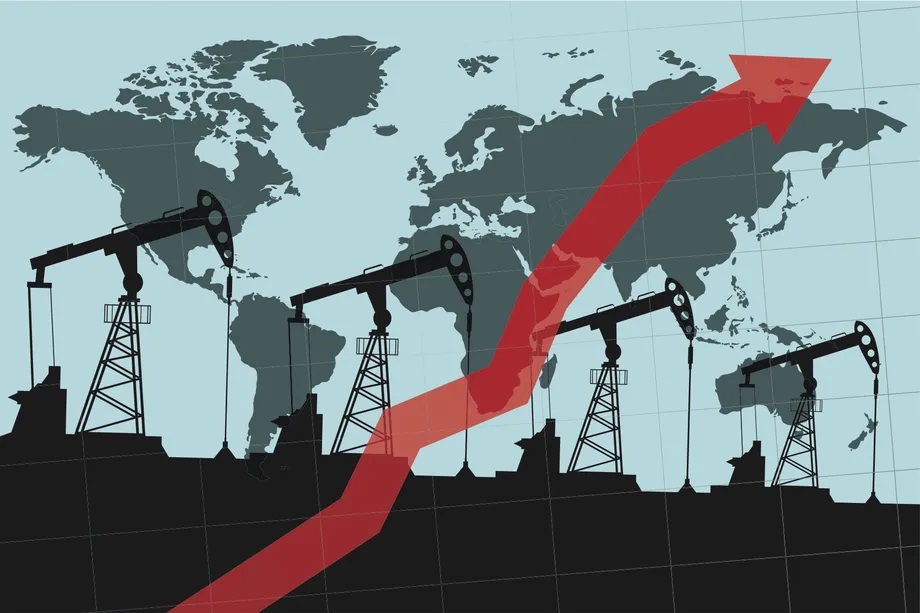ExxonMobil wants you to feel responsible for climate change so it doesn’t have to!
A new study reveals how the oil company used “cutting-edge propaganda” to focus on fossil fuel consumption, b

To understand why ExxonMobil has been so effective at shaping the US narrative about climate change in the US for some 40 years, look no further than the words of one of the company’s communications strategists, Mobil Vice President of Public Affairs Herbert Schmertz: ”Your objective is to wrap yourself in the good phrases while sticking your opponents with the bad ones,” he wrote in 1986.
From the 1970s through the 1990s, most of the company’s PR efforts focused on casting doubt on the scientific consensus that burning fossil fuels was warming the planet. But by the mid-2000s, it was taking a more sophisticated, nuanced approach.
“Energy-saving consumers can make a real difference,” it said in 2007, listing ways consumers can “Be smart about electricity use,” “Heat and cool your home efficiently,” and “Improve your gas mileage” to address climate change. Another ad in 2008 looks to the auto industry: “It is important we reduce greenhouse gas emissions, too. Improving the efficiency of the vehicles people drive is one way to do so.”
There are many examples in ExxonMobil’s advertising materials and other documents right up to 2019, all doing the same thing: Deflecting attention away from the oil company’s role in fueling climate change by supplying fossil fuels and turning attention toward consumer demand for, and dependency on, its products.
We now have a comprehensive view of this strategy, thanks to a new peer-reviewed study by Harvard research associate Geoffrey Supran and Harvard science historian Naomi Oreskes in the journal One Earth. In a painstaking analysis, they show how hard the oil giant has worked to keep the conversation about climate solutions focused on the consumer, effectively individualizing responsibility for the problem.
“Never before has it been proven that fossil fuel propaganda is demonstrably one source of where this [consumer- and demand-focused] mindset has originated from,” Supran told Vox.
Blaming the individual user, rather than the producers, is a well-worn tactic of other industries with dangerous products, including tobacco and firearms. In the case of fossil fuel products, individualizing the responsibility for climate change obfuscates the responsibility of companies like Exxon — one of 20 companies responsible for one-third of energy-related global carbon emissions since 1965 — to extract fewer fossil fuels and shift to cleaner technologies. And according to Oreskes and Supran, not only has this messaging strategy allowed Exxon to “downplay its role in the climate crisis,” it also continues to be used “to undermine climate litigation, regulation, and activism.”
A first-of-its-kind analysis of Exxon’s public messaging
Supran and Oreskes use a trove of documents that they have combed through in past research, namely a 2017 paper that found ExxonMobil internally acknowledging its products’ role in climate change, while publicly casting doubt on the science.
Starting in the late 1970s, the company ran regular advertisements in the New York Times. The researchers looked at those ads as well as more recent reports aimed at investors through 2019 for a total of 212 documents that provide a solid chronology of how the oil company has communicated with the public on climate science.
The early ads took a skeptical stance on climate science, but in the 2000s they started to emphasize the uncertainty of risks, rather than the consensus of manmade warming. When ExxonMobil did acknowledge the need to reduce pollution, it disproportionately talked about how much it was doing to address the demand-side of the equation, rather than addressing the obvious other half: the increasing supply.
When Supran ran his algorithm to pick up the most frequently used terms and topics in the papers, he was surprised at what they found: The company’s messaging was largely consistent in the advertisements up to 2009 and in reports up to 2019, statistically overusing certain language, like “risk” and “demand,” to hammer home these themes.
In 1997, the company touted helping “customers scale back their emissions of carbon dioxide,” while the next year it encouraged the public to “show a little voluntary ‘can do.’” A decade later, in 2008, an ad suggested the ‘‘cars and trucks we drive aren’t just vehicles, they’re opportunities to solve the world’s energy and environmental challenges.’’
Throughout this time, ExxonMobil discussed growing fossil fuel demand as an inevitability, saying things like, “Oil and gas will be essential to meeting demand through 2030” and “fossil fuels must be relied upon to meet society’s immediate and near-term needs.”
The company only acknowledges its own culpability in obscure academic journals and internal memos. One 1982 internal memo writes what the company never admits publicly, that “the connection between Exxon’s major businesses and the role of fossil fuel combustion in contributing to the increase of atmospheric CO2.”
The other trend the Harvard researchers note is how the company shifted to a “Fossil Fuel Savior” frame in the mid-2000s. A 2007 company ad notes the “increasing prosperity in the developing world [will be] the main driver of greater energy demand (and consequently rising CO2 emissions),” which positions the company as another passive bystander in global warming.
Asked for comment on the study, Exxon spokesperson Casey Norton called it a conflict of interest, alleging that Oreskes is on retainer for Sher Edling, one of the law firms that has sued Exxon, and that the research was partially funded by the Rockefeller Family Fund, which is also involved in litigation against oil companies.
“This research is clearly part of a litigation strategy against ExxonMobil and other energy companies,” Norton said. “ExxonMobil supports the Paris climate agreement, and is working to reduce company emissions and helping customers reduce their emissions while working on new lower-emission technologies and advocating for effective policies.” (Supran and Oreskes, in response, said Sher Edling “played no role in the paper we published today, nor in any other academic work we have done,” charging that ExxonMobil’s statement was purposely misleading.)
The problem with climate shame
Shaming individuals has pretty much always been a part of the climate discourse. Political leaders focus on recycling and consumption of plastics, rather than banning production, and now “flight shame” has taken off as a way to discourage plane travel to tackle the rising footprint of transportation emissions.
But shame has a dark side: It can be a distraction that lets key perpetrators of climate change off the hook.
Supran and Oreskes don’t have a precise measure of the impact ExxonMobil’s marketing has had on the public discourse — their methodology doesn’t go that far — but there’s plenty of anecdotal evidence that policymakers and the media overemphasize personal responsibility instead of systemic political and economic change.
“At the grassroots level, people get accused of being hypocrites all the time,” for flying, driving, or using plastics, also derived from fossil fuels, Supran said. And research from Georgia State University shows how shame messaging can backfire: In a 2020 paper, they showed that in some cases, being told to drive less or change your diet can make people less willing to want to reduce greenhouse gas emissions.
ExxonMobil wasn’t the first oil company to push these narratives. “The very notion of a personal ‘carbon footprint,’ for example, was first popularized in 2004-2006 by oil firm BP as part of its $100+ million per year ‘beyond petroleum’ US media campaign,” Supran and Oreskes write. But ultimately these narratives “hamstring us, and they put blinders on us, to the systemic nature of the climate crisis and the importance of taking collective action to address the problem,” Supran said.
The real-world implications of the Exxon docs
It’s useful to have some statistical rigor backing up the observations of many academics, activists, and journalists, that by emphasizing demand, oil companies can play the part of innocent bystanders feeding a global hunger for their products.
But the more consequential implications for this research may be in the courts. Major oil companies like ExxonMobil are currently facing an onslaught of lawsuits around the world charging that they have broken the law by pushing misinformation and thwarting climate action. The Sabin Center for Climate Change Law at Columbia Law School counted 884 climate cases in 2017 had doubled to 1,550 cases by 2020 in 38 countries (Exxon is not the only subject of all these lawsuits).
Just recently, New York City filed a new lawsuit against ExxonMobil, Shell, BP, and the American Petroleum Institute for violating the city’s consumer protection laws, another sign the wave of litigation is not slowing down.
Supran and Oreskes’s study may be relevant to these lawsuits for a couple of reasons.
First, the researchers note that ExxonMobil may be mounting a clever defense against these lawsuits with its greenwashing. One of its defenses actually cited the same logic that appears again and again in its advertising, that climate risks are common knowledge and the company bears no control over how people choose to live. Supran and Oreskes note the example:
In 2018, arguing in defense of five oil companies (including ExxonMobil Corp) against a lawsuit brought by California cities seeking climate damages, Chevron lawyer Theodore Boutrous Jr. offered his interpretation of the IPCC’s latest report: ‘‘I think the IPCC does not say it’s the production and extraction of oil that is driving these emissions. It’s the energy use. It’s economic activity that creates demand for energy.’’ ‘‘It’s the way people are living their lives.’’ The judge’s dismissal of the case accepted this framing: ‘‘[W]ould it really be fair to now ignore our own responsibility in the use of fossil fuels and place the blame for global warming on those who supplied what we demanded?’’
Even if plaintiffs prove their case, fossil fuel companies can invoke ‘‘affirmative defenses’’—as tobacco companies often have—such as ‘‘common knowledge’’ and ‘‘assumption of the risk.’’ These respectively argue (1) ‘‘that the plaintiff had engaged in an activity [such as smoking] that involved obvious or widely known risks,’’ and (2) ‘‘that the plaintiff knew about and voluntarily undertook the risk.’’ As Brandt explains it, ‘‘If there was a risk, even though ‘unproven,’ it nonetheless must be the smoker’s risk, since the smoker had been fully informed of the ‘controversy.’ The industry had secured the best of both worlds.’’
The second implication is how their research can become a useful tool for climate activists and policymakers looking to hold ExxonMobil responsible. What Supran and Oreskes do in their paper, according to Carroll Muffett, president of the Center for International Environmental Law, is “prove quantitatively what has been qualitatively evident for years. … Oil and gas companies insulated themselves from public scrutiny and regulatory action even as the climate crisis accelerated.”
And any proof that oil companies were insulating themselves from climate policies while misleading the public is likely to become useful fodder in the courtroom. “This evidence will matter not only in the court of public opinion, but in courts of justice around the world faced with questions of industry accountability, culpability, and potential liability for mounting climate impacts,” Muffett said.
The message Supran hopes people take from his work isn’t that your actions don’t matter. But governments need to take responsibility and hold the major polluters accountable — and those policies include a broader mix of solutions that limit the fuels Exxon can extract, axing pipeline projects for transportation, limiting its opportunity to export around the world, and even make companies pay for the damages caused to vulnerable communities.
“This is cutting-edge propaganda coming from an industry with 100 years of experience in pioneering the art of public relations,” he said. “And people should be aware of what they’re subject to, because otherwise it gets into our bones without us even knowing where it came from.”


